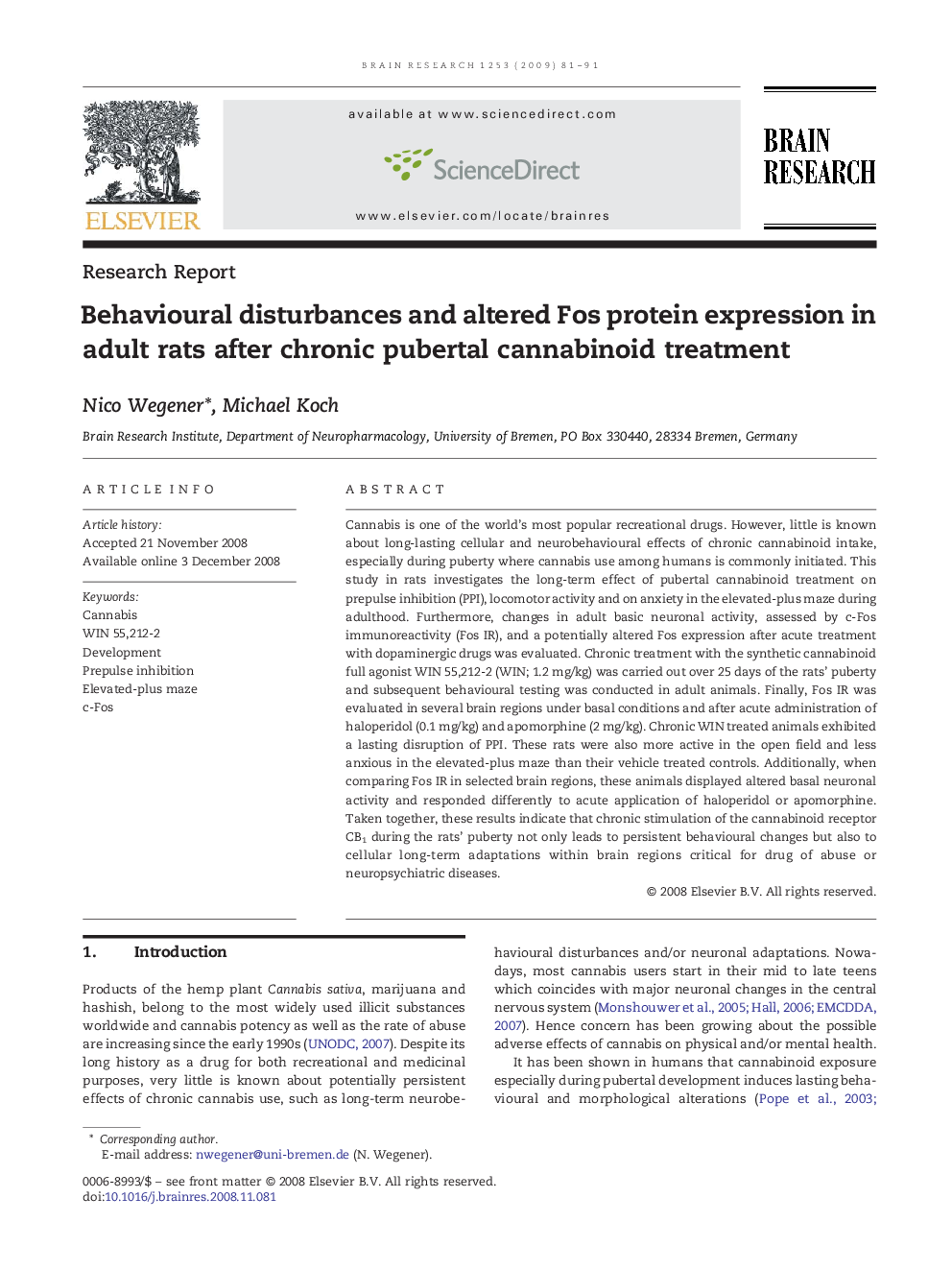| Article ID | Journal | Published Year | Pages | File Type |
|---|---|---|---|---|
| 4328763 | Brain Research | 2009 | 11 Pages |
Cannabis is one of the world's most popular recreational drugs. However, little is known about long-lasting cellular and neurobehavioural effects of chronic cannabinoid intake, especially during puberty where cannabis use among humans is commonly initiated. This study in rats investigates the long-term effect of pubertal cannabinoid treatment on prepulse inhibition (PPI), locomotor activity and on anxiety in the elevated-plus maze during adulthood. Furthermore, changes in adult basic neuronal activity, assessed by c-Fos immunoreactivity (Fos IR), and a potentially altered Fos expression after acute treatment with dopaminergic drugs was evaluated. Chronic treatment with the synthetic cannabinoid full agonist WIN 55,212-2 (WIN; 1.2 mg/kg) was carried out over 25 days of the rats' puberty and subsequent behavioural testing was conducted in adult animals. Finally, Fos IR was evaluated in several brain regions under basal conditions and after acute administration of haloperidol (0.1 mg/kg) and apomorphine (2 mg/kg). Chronic WIN treated animals exhibited a lasting disruption of PPI. These rats were also more active in the open field and less anxious in the elevated-plus maze than their vehicle treated controls. Additionally, when comparing Fos IR in selected brain regions, these animals displayed altered basal neuronal activity and responded differently to acute application of haloperidol or apomorphine. Taken together, these results indicate that chronic stimulation of the cannabinoid receptor CB1 during the rats' puberty not only leads to persistent behavioural changes but also to cellular long-term adaptations within brain regions critical for drug of abuse or neuropsychiatric diseases.
